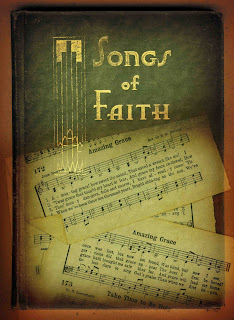 |
| Image: Pixabay |
TO CHEW ON: “God, who at various times and in various ways spoke in time past to the fathers by the prophets, has in these last days spoken to us by His Son…” Hebrews 1:1,2
In Hebrews 1 the writer has put together a montage of Old Testament prophecies that predict the excellency of God’s Son.
1. He is creator - Hebrews 1:2,10 (quoting Psalm 102:25-27).
2. He is the One who “purged our sins” - Hebrews 1:3.
3. Mission accomplished, He now enjoys His inheritance at God’s right hand. As such He is King of the angels—greater than, served and worshiped by them - Hebrews 1:4,5,6,7,13 (quoting Psalm 2:7; 2 Samuel 7:14; Deuteronomy 32:43 NLT; Psalm 104:4; Psalm 110:1).
4. His kingdom is eternal - Hebrews 1:8,11,12 (quoting Psalm 45:6,7; Isaiah 34:4; 50:9; 51:6).
5. His kingdom is righteous - Hebrews 1:8,9 (quoting Psalm 45:6,7; Isaiah 61:1,3).
6. His kingdom is joyous - Hebrews 1:9 (quoting Isaiah 61:1,3).
7. His kingdom is unchanging - Hebrews 1:12 (quoting Isaiah 50:9; 51:6).
As we come ever closer to the day we celebrate the incarnation of God’s Son (Jesus Christ), let’s stir up our adoration and worship by meditating on these grand prophecies and their fulfillment in Jesus:
“O come, all ye faithful,
Joyful and triumphant,
O come, ye, O come ye to Bethlehem!
Come and behold Him
born the King of angels!
O come, let us adore Him,
O come, let us adore Him,
O come, let us adore Him,
Christ the Lord.”
~ John Francis Wade circa 1743 (Translated from the Latin).
(It sounds like John Francis Wade may have read Hebrews 1 before he wrote this beautiful Christmas hymn!)
PRAYER: Dear Jesus, thank You for coming to purge our sins and establish an eternal, righteous, joyous, and unchanging kingdom. Amen.
PSALM TO PRAY: Psalm 25
The Bible Project VIDEO: Hebrews (Read Scripture Series)
*********
Unless otherwise noted all Scripture quotations are taken from the New King James Version®. Copyright © 1982 by Thomas Nelson, Inc. Used by permission. All rights reserved.


















